
- Alioum Fantouré – Le cercle des tropiques
- Paul Lomami Tchibamba – Ngando et autres récits
- Léon-Gontran Damas – Pigments
- Djibril Tamsir Niane – Soundjata ou l’épopée Mandingue
Alioum Fantouré (Guinea) – Le cercle des tropiques
– Debut novel, 1972 –
|
Summary: This novel, winner of the prestigious Grand Prix de Littéraire d’Afrique Noire, has been seen as a story about the struggles of nation-building in Africa, as a fierce depiction of dictatorships in the Third World, and as a profound meditation on the nature of power everywhere.
|
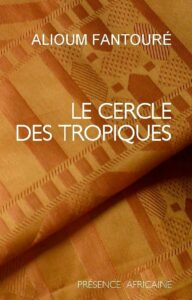 |
| Publication: Présence Africaine, 1972 Language: French Rights: World rights to Présence Africaine Genre: Debut novel Extent: 313 p. Translations: English, Dutch, Portuguese Bio: Alioum Fantouré was born in Forécariah in the Republic of Guinea in 1938. After studying economics in France and Belgium, he worked in various international cooperation organizations, including the European Economic Community in Brussels and the United Nations, where he was was a senior official. As an industrial development specialist, he has carried out various research and development projects. Since his retirement, he has devoted himself to his literary work. Le Cercle des Tropiques, Fantouré’s first novel, won the Grand Prize for Black African Literature in 1973, followed by The man of the herd of the Sahel (1979), The dark veil (1985), The governor of the territory (1995), The Story of the Circus… of the valley of the dead (2000), The rainbow over Africa (2001) which won the Prix Media Tropical. Link to the book & Fantouré’s other works on Présence Africaine: Here Rights inquiries: Here |
|
|
Tropical Circle, trans. by Dorothy S. Blair (1989)
|
Paul Lomami Tshibamba (Congo Kinshasa) – Ngando & Other Stories
– Novella, 1948, 1982 –
|
Summary: In 1948 Lomami Tshibamba was awarded in Brussels the first prize at the Colonial Fair for his novella Ngando (Crocodile): the work, which in many ways marks the beginning of Congolese national literature in French, depicts traditional beliefs during the colonial period in a story set on the banks of the Congo River. Its themes are alienation and cultural conflict. First translation (Dutch) forthcoming in 2023.
|
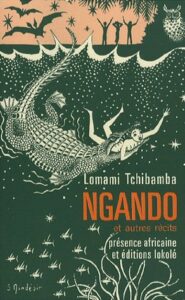 |
|
Publication: Présence Africaine, 1982 Bio: After high school in Kinshasa, Lomami Tshibamba collaborated with various periodicals in the Belgian Congo, before going into exile in Brazzaville where he created the magazine Liaison, a test bed for writers Tchicaya U Tam’si, J.-B. Tati-Loutard or Sylvain Bemba. He was one of the guests at the Congress of Black Writers and Artists organized by Présence Africaine in 1956 in Paris. Back in Congo-Zaire, after a short political experience and the creation of the national daily newspaper Le Progrès, he held a position in a cultural administration. The first winner of a literary competition in the Belgian colony in 1948, he published Ngando (1949, republished by Présence Africaine in 1982), La récompense de la cruauté (Ed. du Mont- Noir, 1972), Ngemena (CLE, 1981). Link to the book on Présence Africaine: Here Rights inquiries: Here |
|
Léon-Gontran Damas (France) – Pigments
-Poetry, 1937, 1962 (for Présence Africaine definitive edition) –
|
Summary: Through Pigments, Damas explored the internalized racism and oppression that occurred within the diaspora, partly paving the way for Frantz Fanon’s “colonized personality,” explored in his seminal work, The Wretched of the Earth. Though Pigments was eventually banned by the French government as a “threat to the security of the state,” before its removal, it was translated and distributed across several countries and continents. First translation in Portuguese (Brazil) forthcoming. |
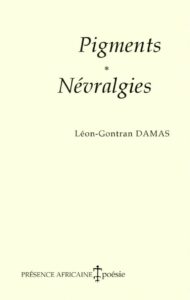 |
|
Publication: Présence Africaine, 1962 Bio: Léon-Gontran Damas (March 28, 1912 – January 22, 1978) was a French poet and politician. He was one of the founders of the Négritude movement. Link to the book on Présence Africaine: Here Rights inquiries: Here |
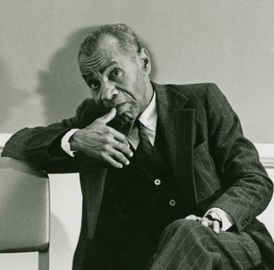
© Léon Damas, 2nd Congress of African People, San Diego, 1972 (creative commons) |
|
Djibril Tamsir Niane (Guinea) – Soundjata ou l’épopée Mandingue
– Epic, 1960 –
|
Summary: Retold by generations of griots-the guardians of African culture-this oral tradition has been handed down from thirteenth century and captures all the mystery and majesty of medieval African kingship. It is an epic tale-part history, part legend-which should rank alongside the ‘Iliad’ and the ‘Odyssey’ as one of the world’s great adventure stories. |
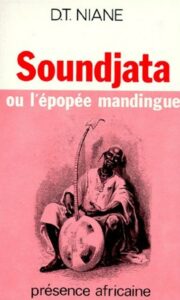 |
|
Publication: Présence Africaine, 1960 Bio: Djibril Tamsir Niane (9 January 1932 – 8 March 2021) was a Guinean historian, playwright, and short story writer. Born in Conakry, Guinea, his secondary education was in Senegal and his degree from the University of Bordeaux. He was an honorary professor of Howard University and the University of Tokyo. He is noted for introducing the Epic of Sundiata, about Sundiata Keita (ca. 1217-1255), founder of the Mali Empire, to the Western world in 1960 by translating the story told to him by Djeli Mamoudou Kouyate, a griot or traditional oral historian. He also edited Volume IV —Africa from the Twelfth to the Sixteenth Century— of the UNESCO General History of Africa and did other UNESCO projects. He was the father of the late model Katoucha Niane (1960–2008). Link to the book on Présence Africaine: Here Rights inquiries: Here |

© Présence Africaine |

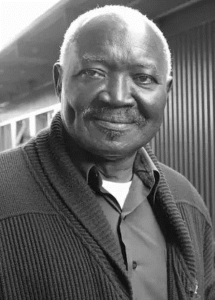 © Alioum Fantouré
© Alioum Fantouré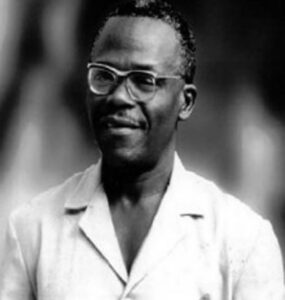 © Présence Africaine
© Présence Africaine